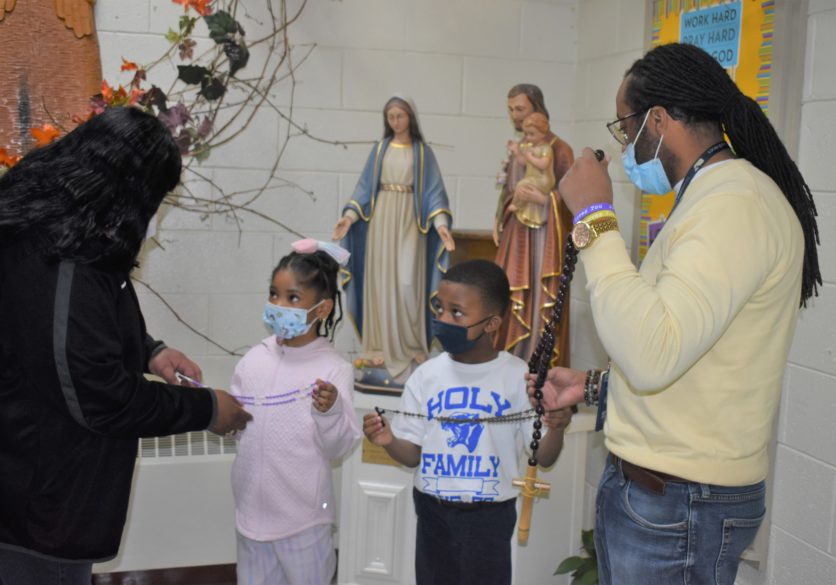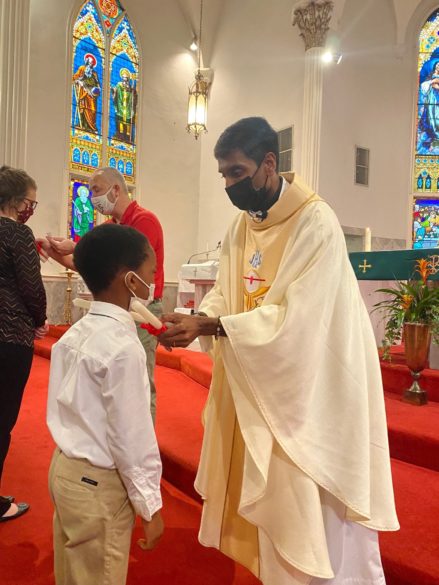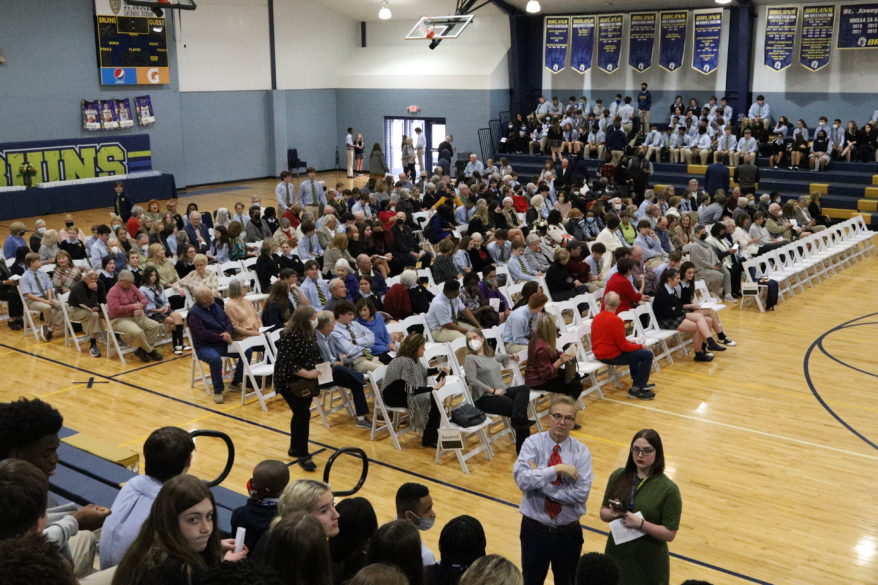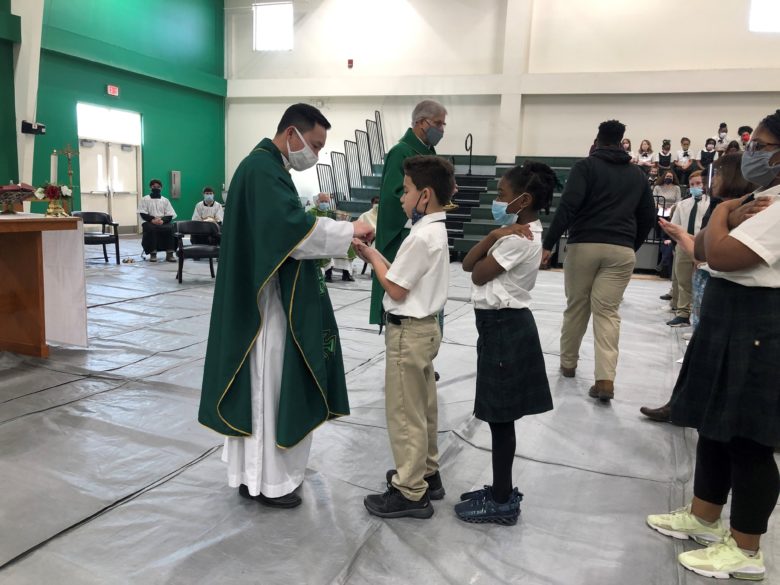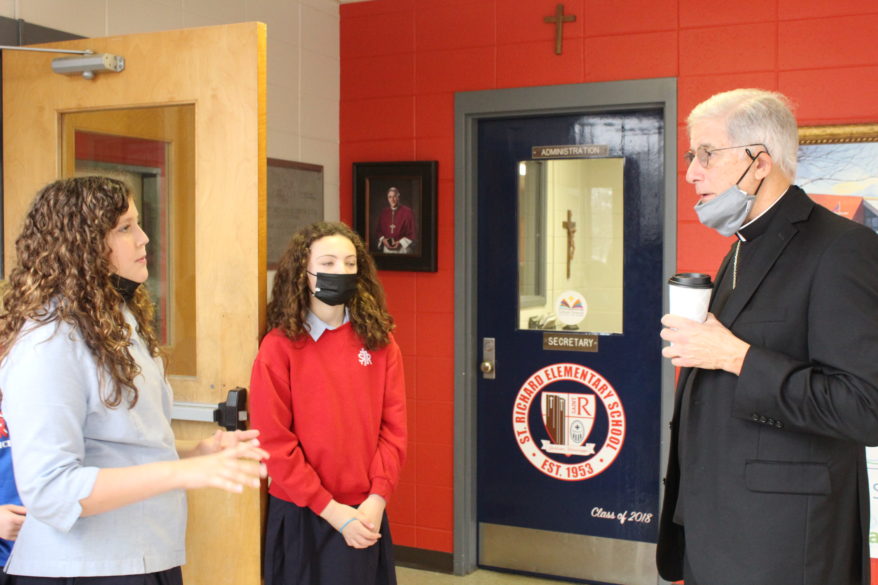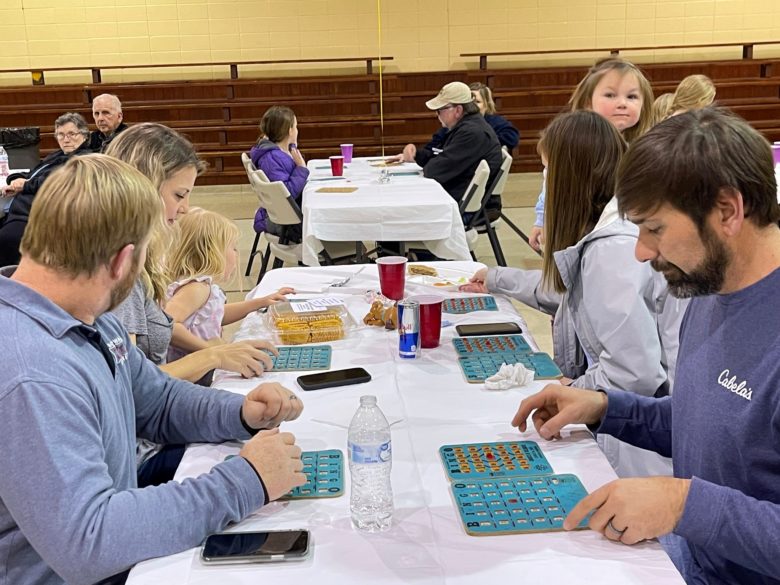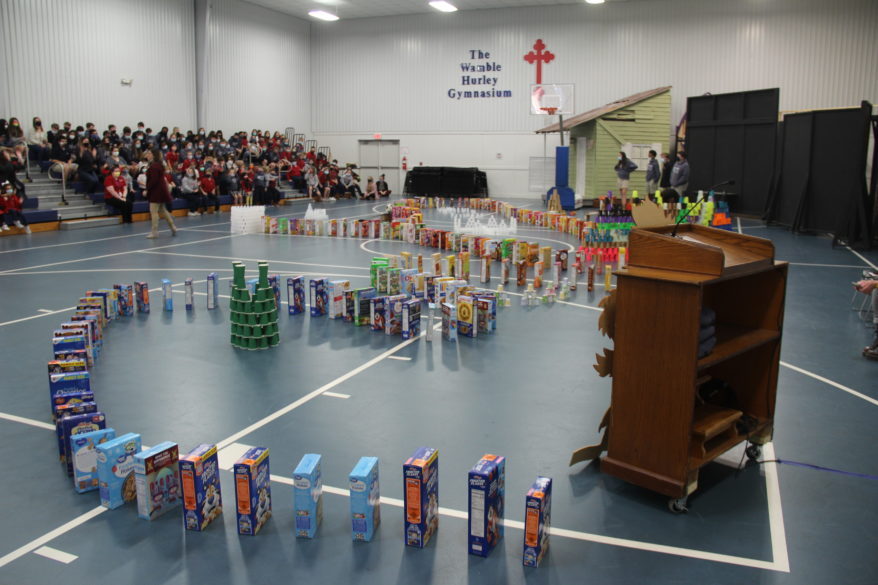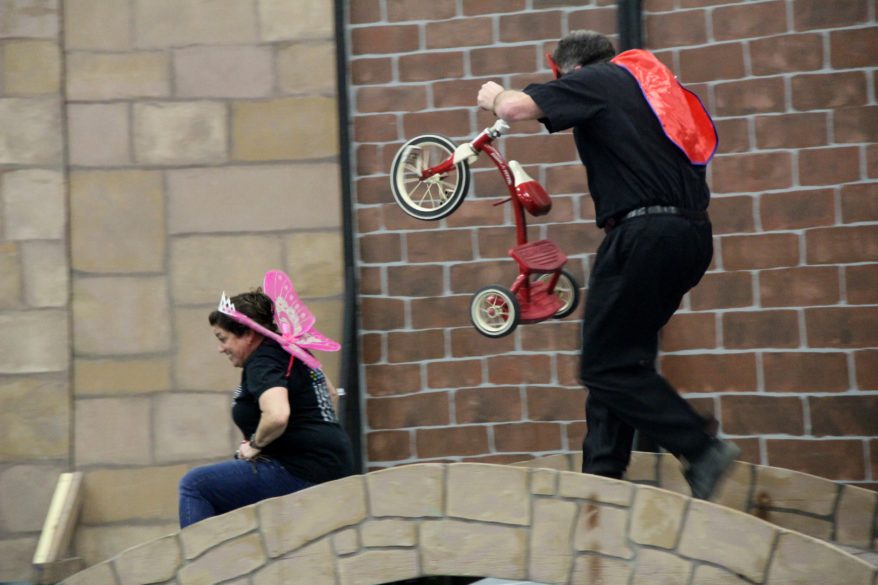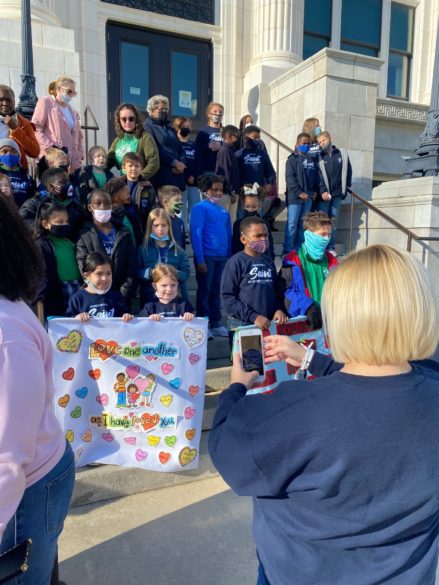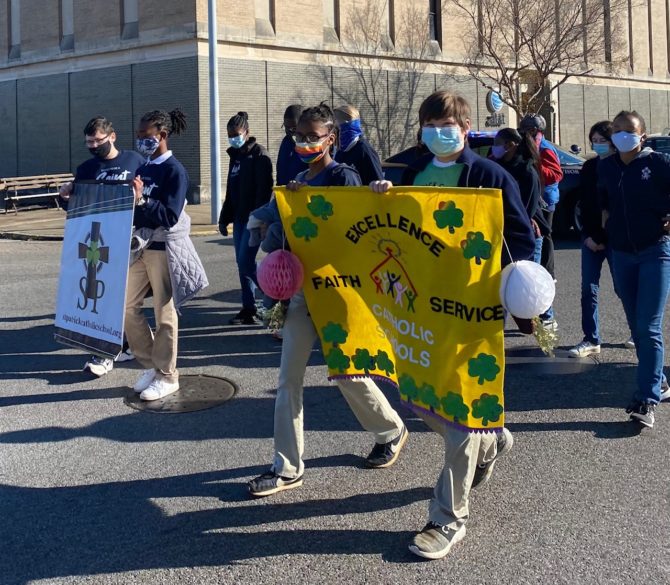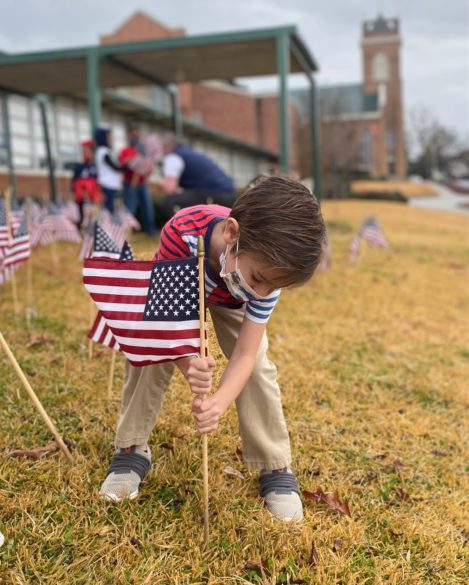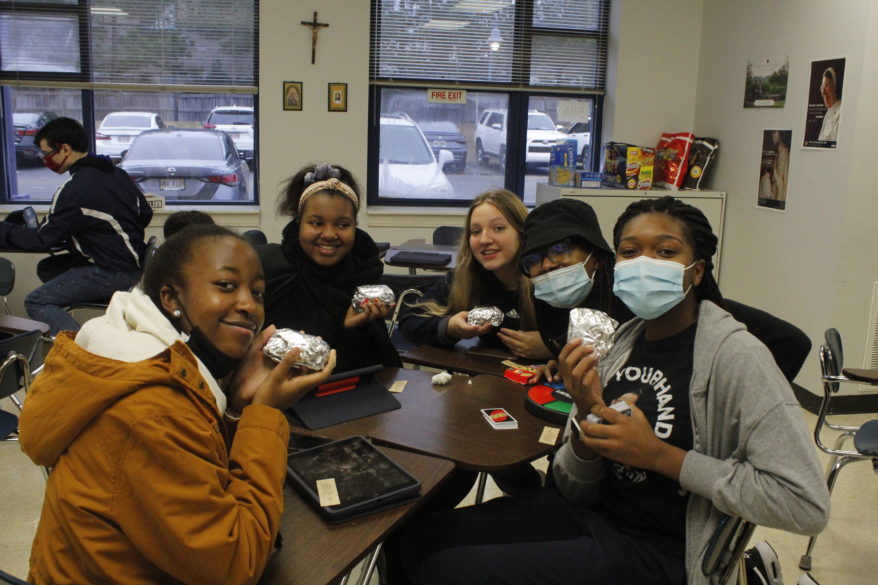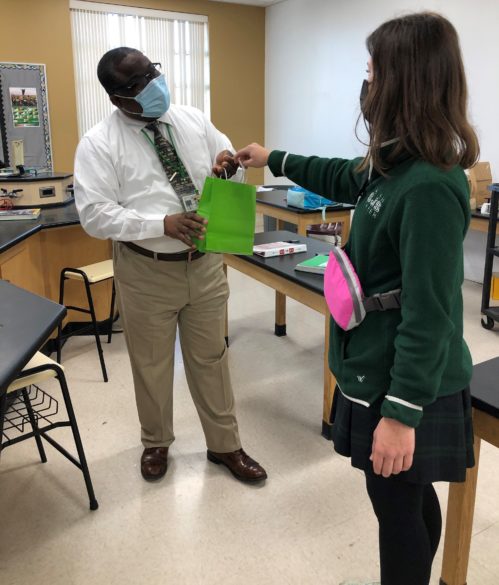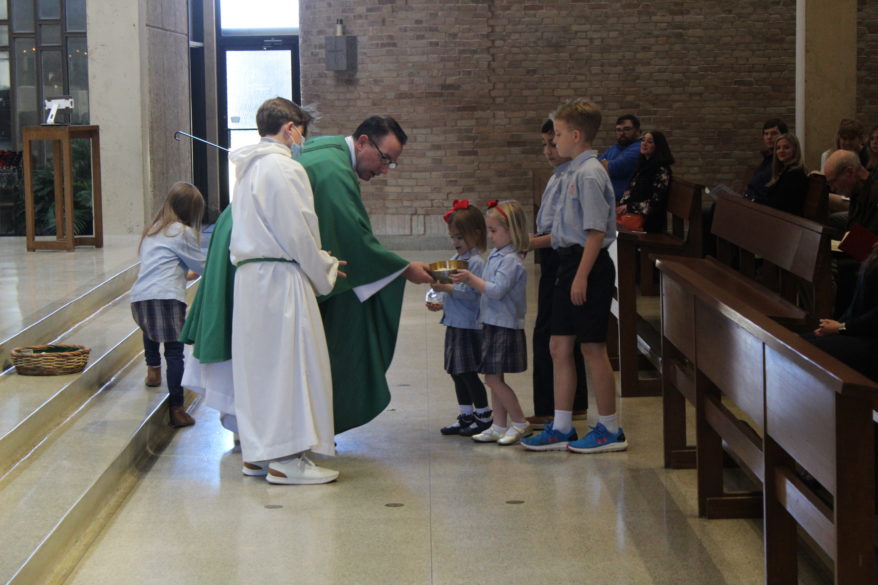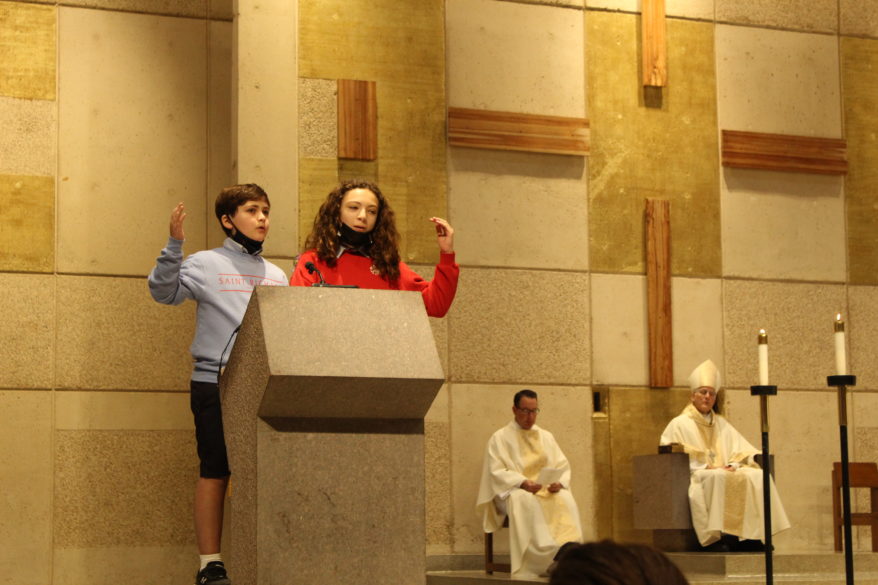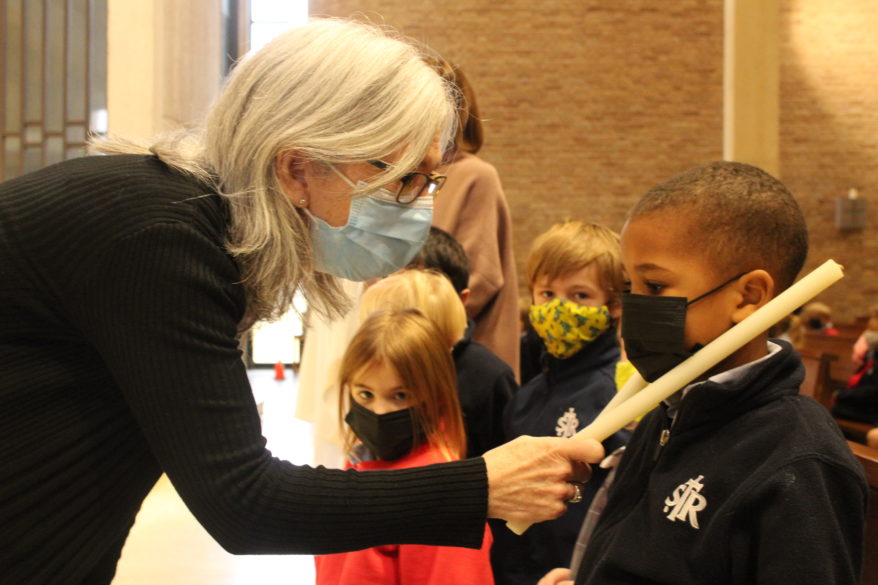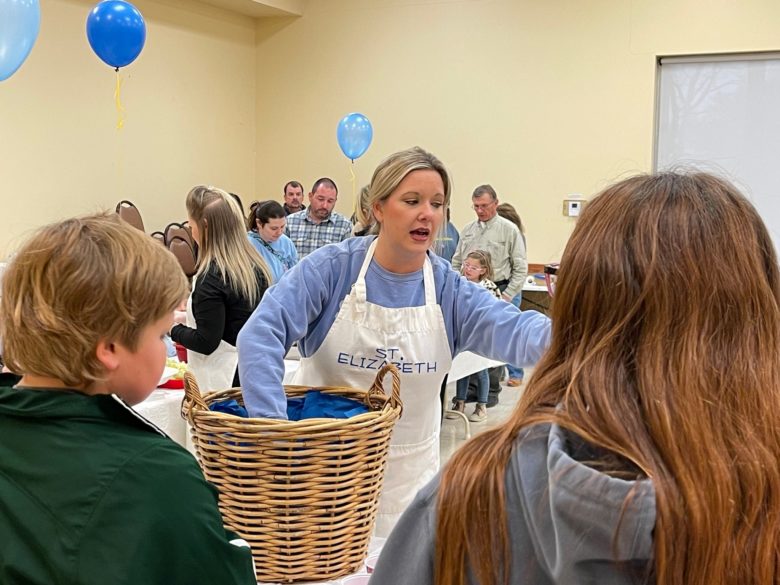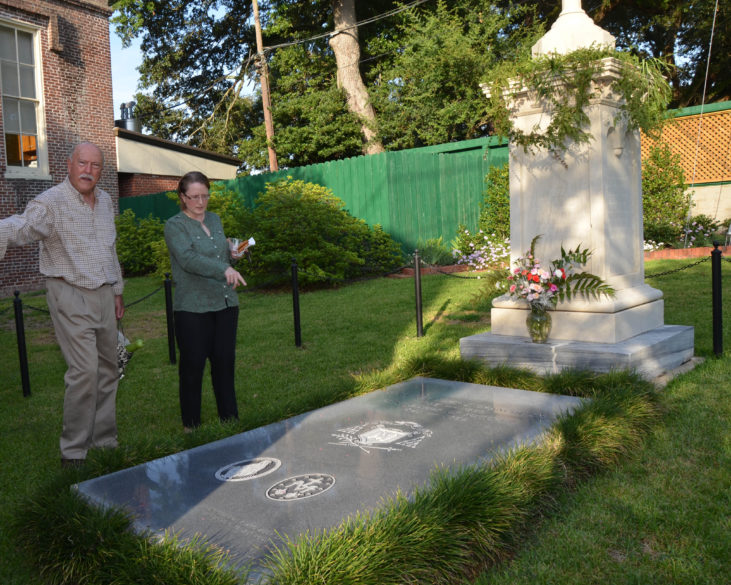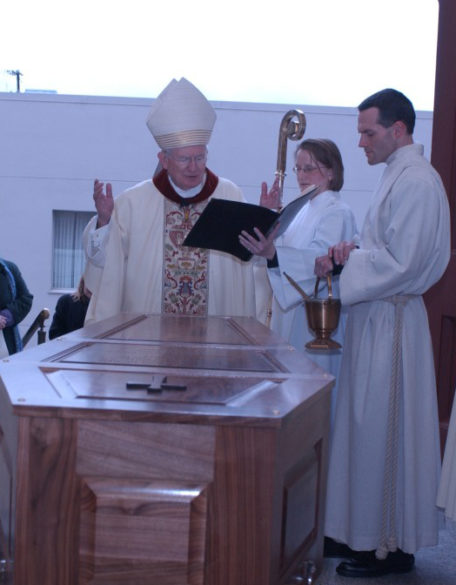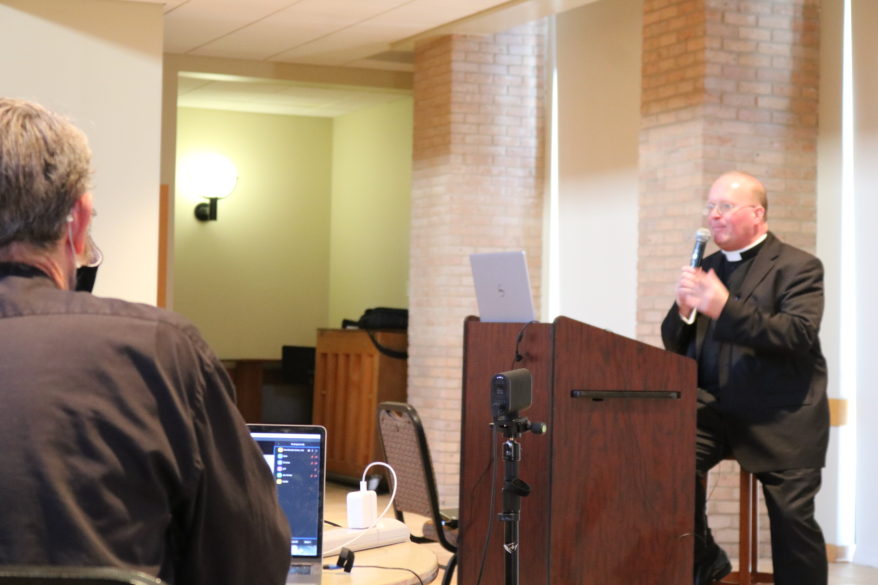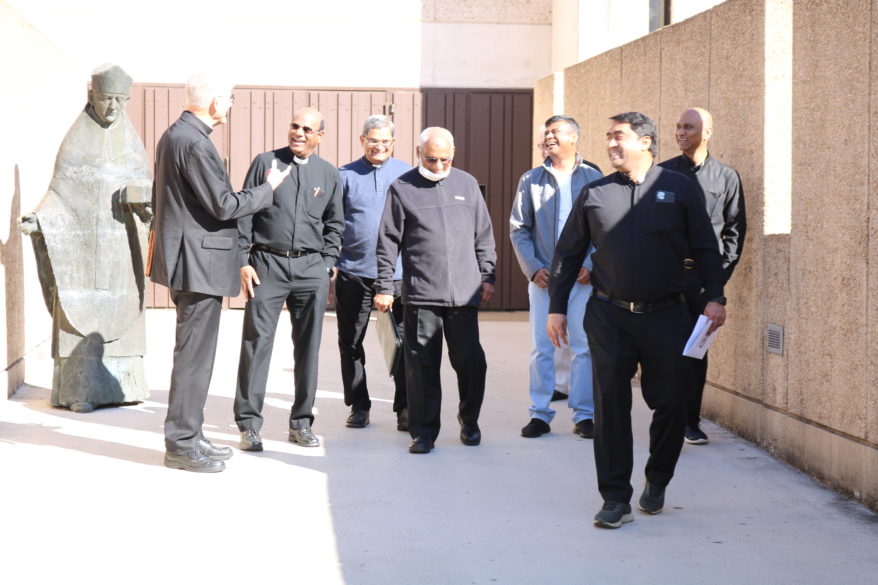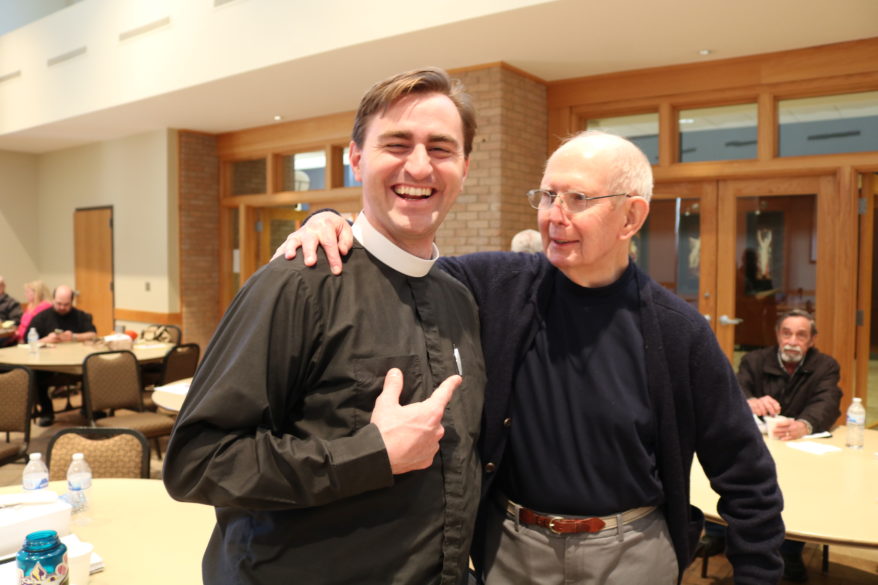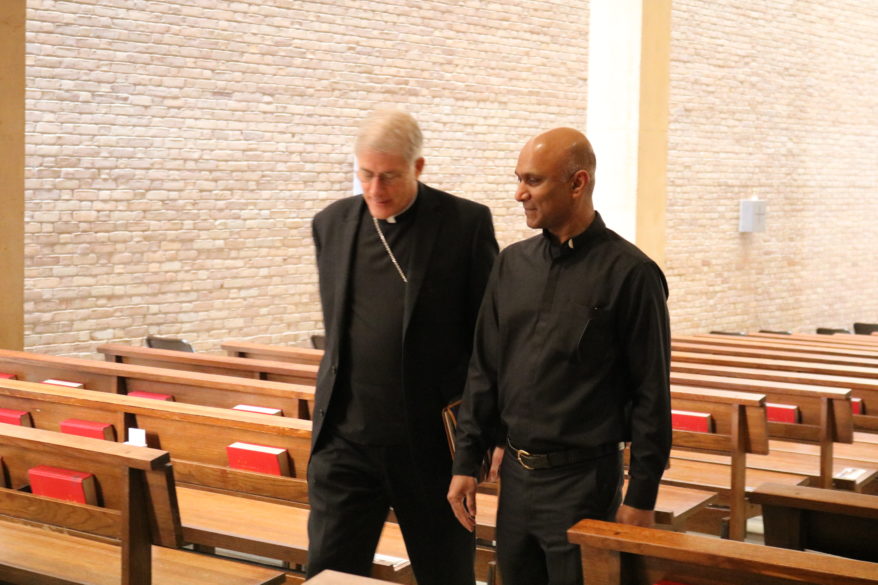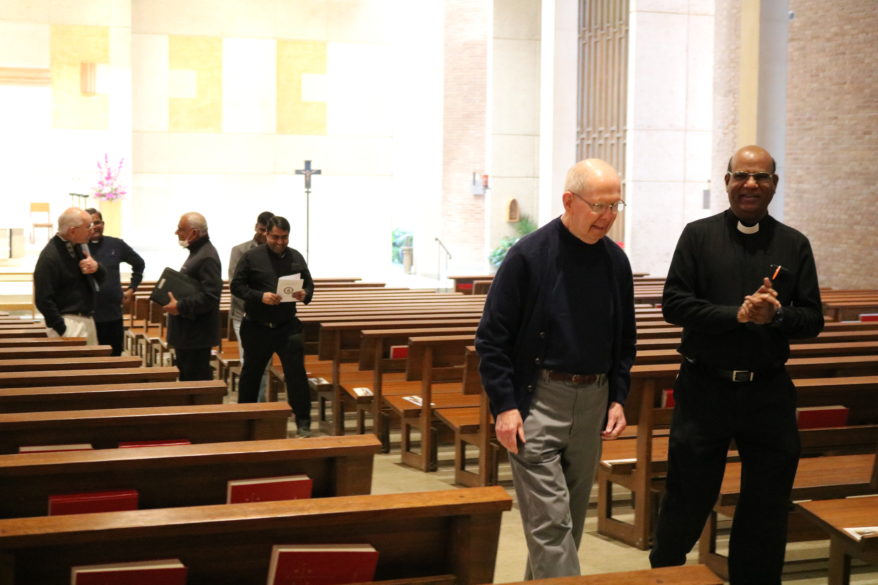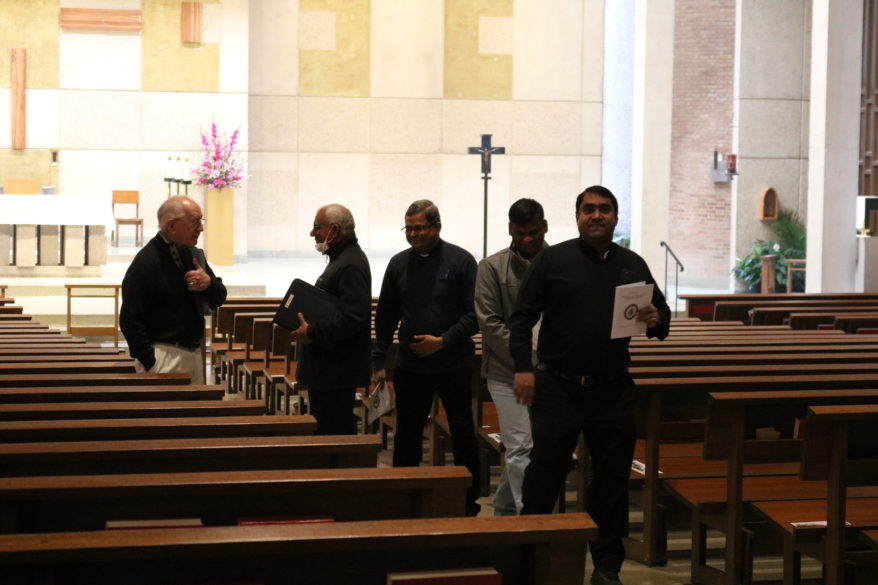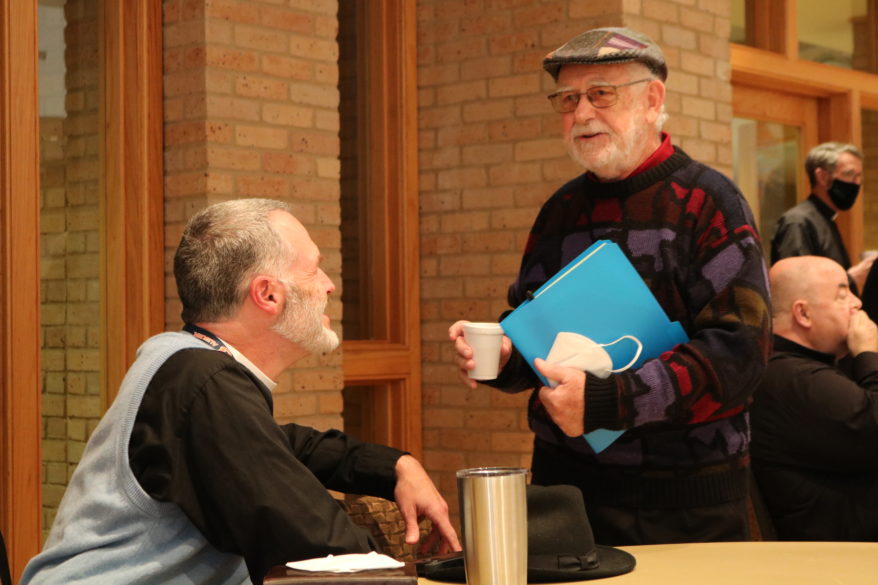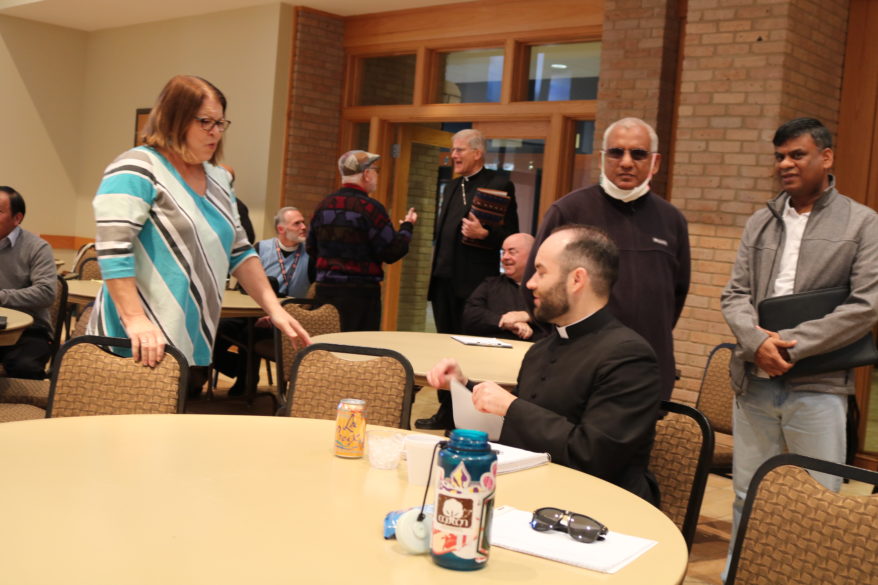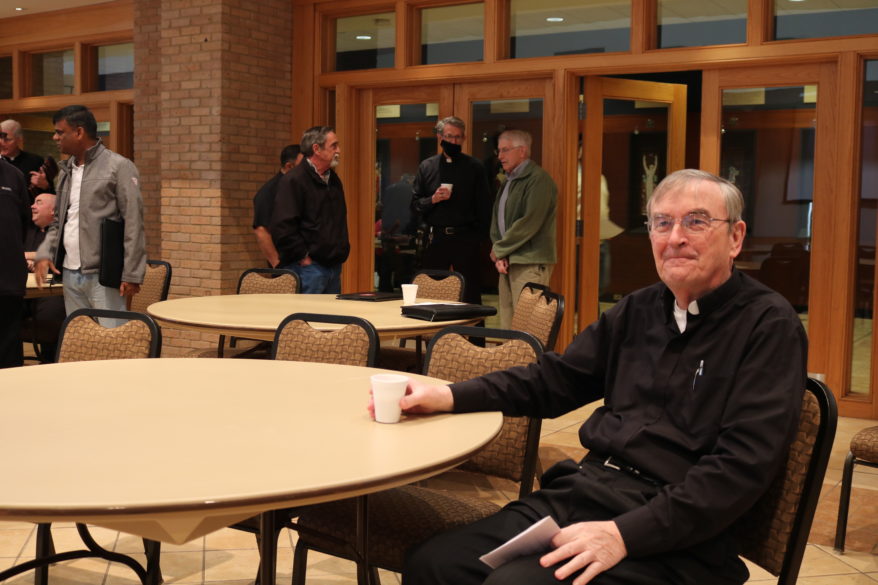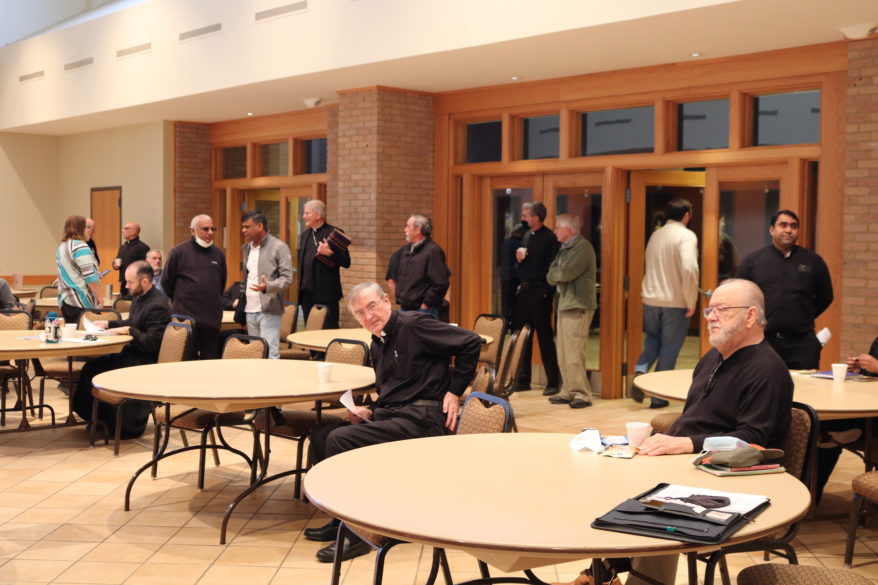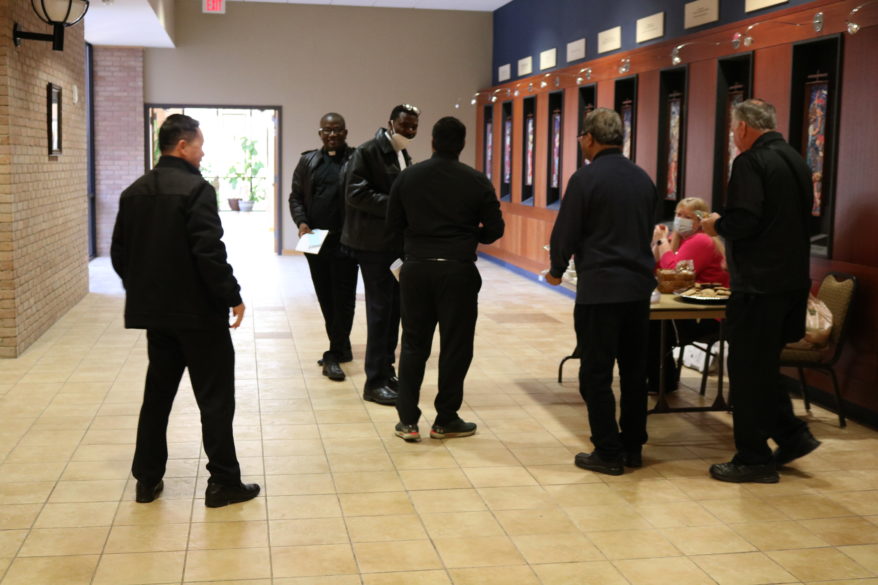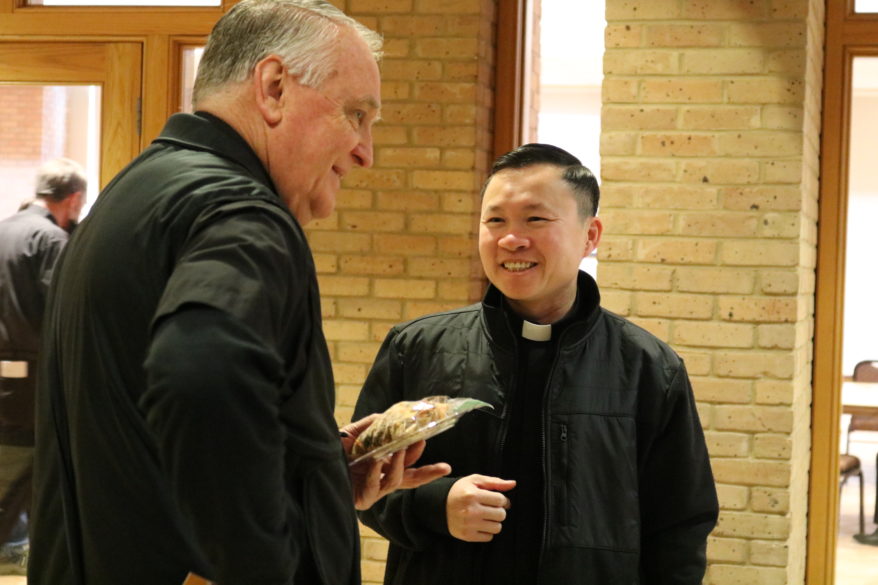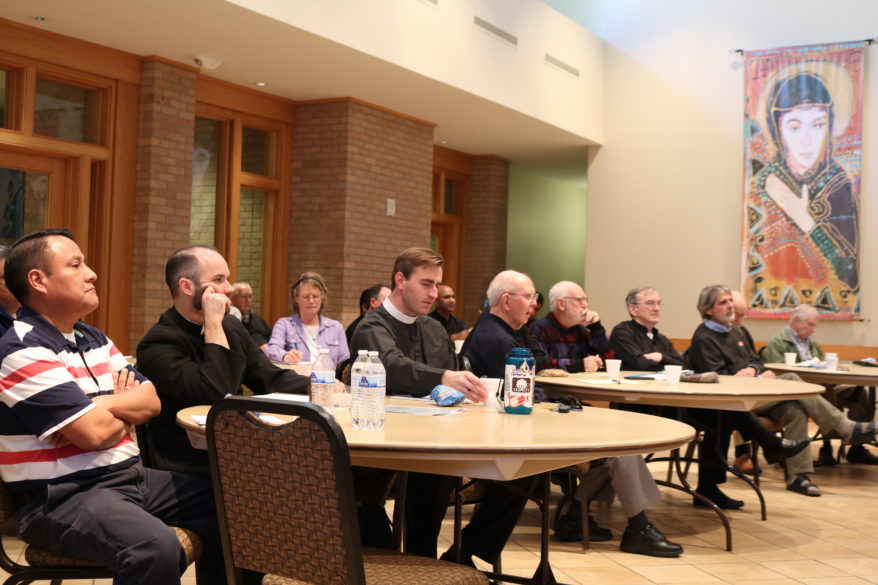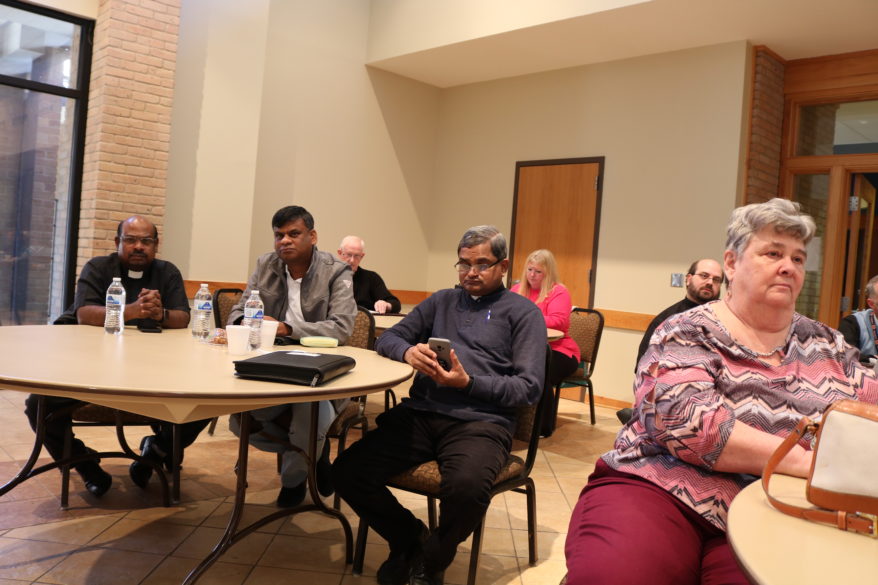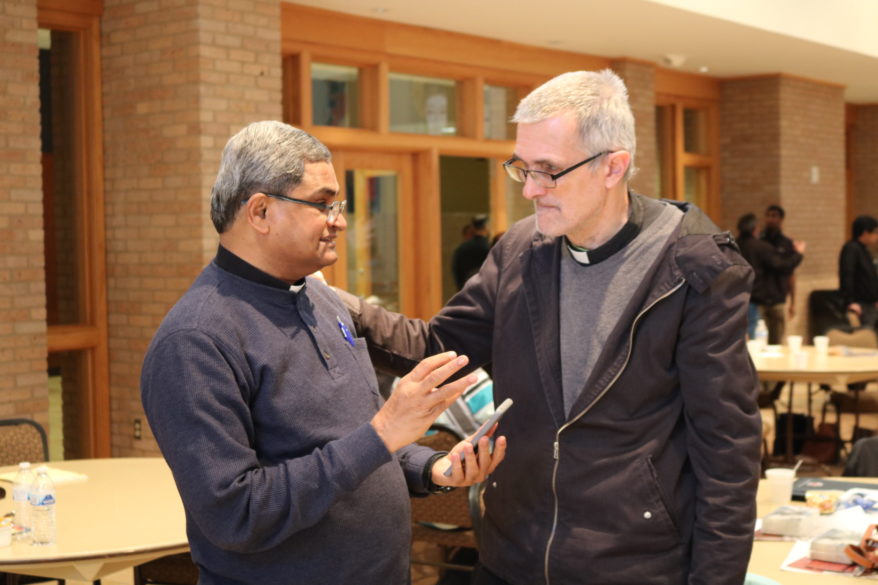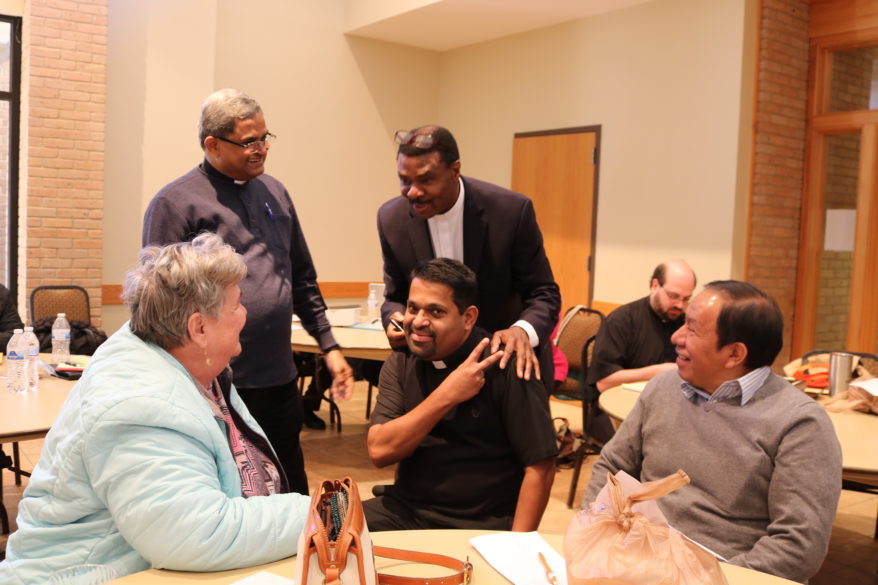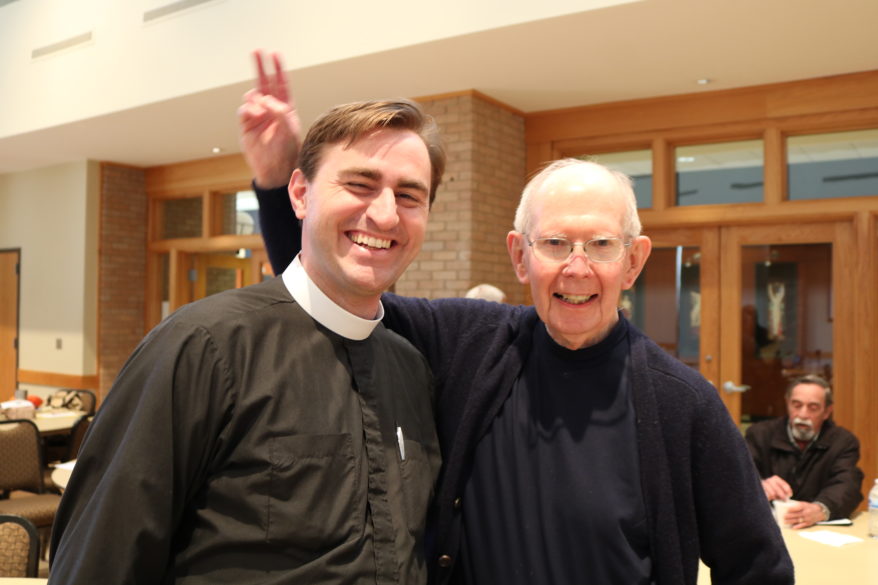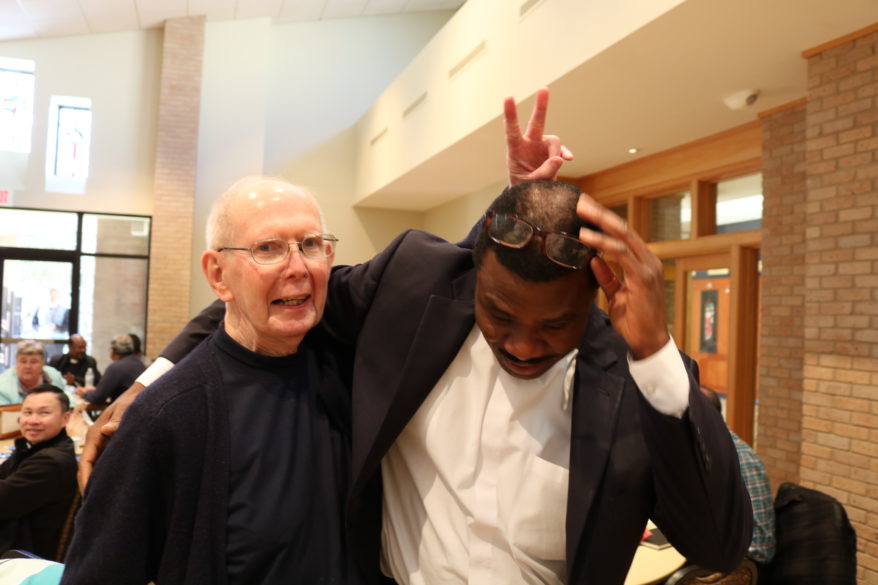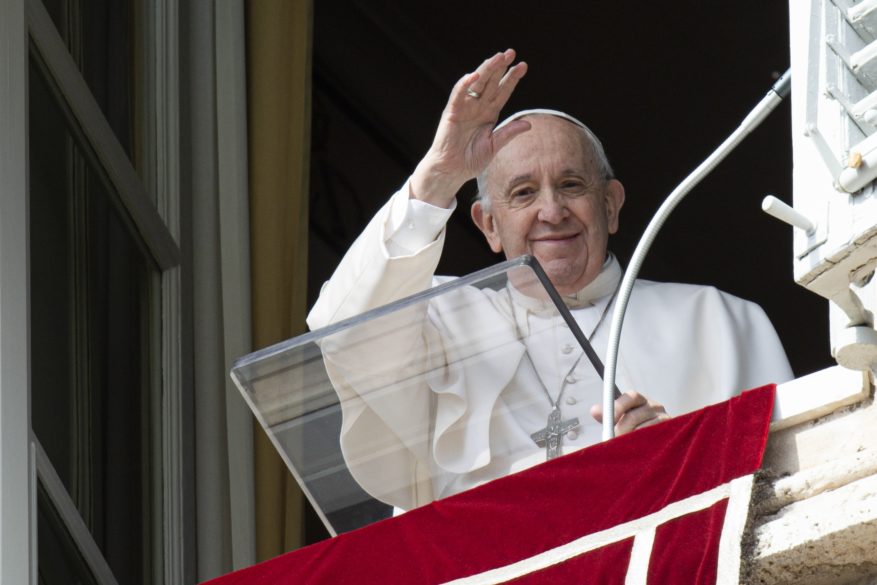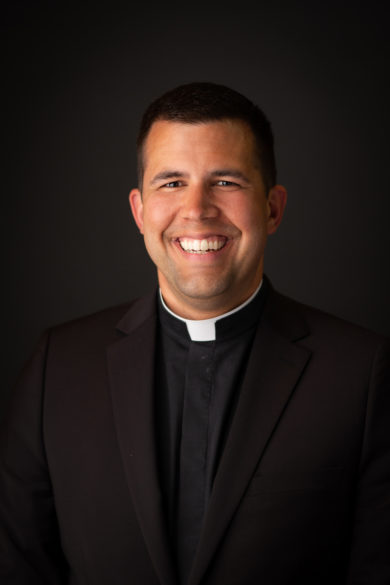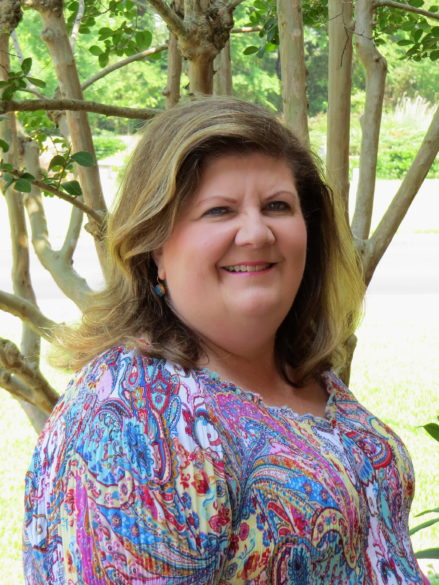By Charlene Bearden and Joanna Puddister King
JACKSON – The Diocese of Jackson celebrated the anniversaries of married couples from around the diocese with a Mass celebrated by Bishop Joseph Kopacz on Sunday, Feb. 13 at the Cathedral of St. Peter the Apostle. According to World Marriage Day history, the idea of celebrating marriage began in Baton Rouge, Louisiana, in 1981, when couples encouraged the Mayor, the Governor and the Bishop to proclaim St. Valentine’s Day as “We Believe in Marriage Day.” The event was so successful, the idea was presented to and was adopted by Worldwide Marriage Encounter’s National Leadership.
By 1982, 43 Governors officially proclaimed the day, and celebrations spread to U.S. military bases in several foreign countries. In 1983, the name was changed to “World Marriage Day,” designated to be celebrated each year in February. In 1993, St. Pope John Paul II imparted his Apostolic blessings on World Marriage Day. World Marriage Day celebrations continue to grow and spread to more countries and faith expressions every year.
To honor couples in 2022, the Diocese of Jackson on behalf of the Office of Family Ministry asked parishes to submit the names of couples celebrating their 60th, 50th, 25th or any significant anniversary. This year, 60 couples from throughout the diocese submitted their names in celebration of their anniversaries.
At the World Marriage Day celebration at the Cathedral of St. Peter the Apostle, couples received an anniversary certificate blessed and signed by Bishop Kopacz.
Please join us in celebrating the anniversaries of the following couples:
60 Years
Johnnie and Ed Bartsek, St. Paul, Flowood
Jean and Virgil Campbell, St. John, Crystal Springs
Dale and James Cannon, Holy Savior, Clinton
Judy and Ron Despeaux, St. Joseph, Gluckstadt
Caroline and George Hoff, Holy Savior, Clinton
Glenda and Victor LaGarde, St. Paul, Vicksburg
Mary and William Marking, Holy Spirit, Hernando
Tammy and Gene McKinney, St. Joseph, Gluckstadt
Norma and Clinton Mixon, St. Joseph, Greenville
Joan and Neil Rhodes, St. Joseph, Gluckstadt
Linda and Stephen Smith, St. Mary Basilica, Natchez
Maureen and Clyde Staley, St. Paul, Flowood
50 Years
Gale and George Baroni, St. Joseph, Greenville
Linda and Tommy Biglane, St. Mary Basilica, Natchez
Cathy and Gene Bishop, Our Lady of Victories, Cleveland
JoAnn and Bob Burke, St. Paul, Flowood
Gwen and Lloyd Everhardt, St. Paul, Flowood
Betsy and Bobby Folsom, St. Michael, Vicksburg
Christine and Don Greer, Holy Spirit, Hernando
Valerie and James E. Hall, St. Richard, Jackson
Carolyn and Bill Johnson, Holy Savior, Clinton
Maureen and Gary Kippe, St. Joseph, Gluckstadt
Faye and Allen Lea, St. Jude, Pearl
Melissa and Sherwood Lyons, St. Paul, Vicksburg
Carol and Michael Maranto, St. Joseph, Greenville
Launo and John Moore, St. Michael, Vicksburg
Verginia and Michael Morlino, St. Joseph, Greenville
Connie and Jack Parker, St. Mary Basilica, Natchez
Carole and Arthur Ring, St. Francis of Assisi, Madison
Barbara and Joe Simmons, St. Joseph, Greenville
Ruth and John Thompson, St. Jude, Pearl
Janice and Dan Waring, St. Paul, Vicksburg
Janet and Ricky Warren, St. Mary Basilica, Natchez
25 Years
Marisa and Mark D. Briscoe, St. Joseph, Greenville
Judy and Stan Burkley, St. Mary Basilica, Natchez
Melanie and Scott DeJong, St. Joseph, Gluckstadt
Regina and Finley Hootsell, St. Mary Basilica, Natchez
Melinda and Allen Laird, St. Mary Basilica, Natchez
Ruth Ann and Paul Love, St. Joseph , Greenville
Jean and Ronald Smith, St. Basilica, Natchez
Stacy and Lee Vanlandingham, St. Jude, Pearl
Carol and Robert Walker, St. Francis of Assisi, Madison
Juliet and Jasin Wesberry, St. Mary Basilica, Natchez
Special Anniversaries
Sharon and John Aguzzi, Our Lady of Victories, Cleveland, 51 years
Corinne and Henry Anderson, Holy Family, Jackson, 61 years
Maria and Maxwell Beluso, Holy Savior, Clinton, 30 years
Madeleine and Jason Brown, St. Richard, Jackson, 10 years
Maureen and Nicholas Calico, St. Jude, Pearl, 51 years
Margaret and Mike Columbus, St. James, Leland, 61 years
Trudy and Dwight Fletcher, St. Jude, Pearl, 51 years
Judith and Ignacio Carillo, St. Peter, Jackson, 40 years
Maria Villa and Ljdefonso Ibale, Holy Savior, Clinton, 30 years
Judy and Jim Isonhood, St. Paul, Flowood, 51 years
Kelly and John McGregor, St. Jude, Pearl, 45 years
Marie and Peter Morris, Cathedral of Saint Peter the Apostle, Jackson, 55 years
Christina and David Overton, St. Jude, Pearl, 26 years
Anna and Jerry Roan, St. Jude, Pearl, 61 years
Emma and Dennis Santos, Holy Savior, Clinton, 35 years
Betsy and Benu Vargheese, Holy Savior, Clinton, 20 years
Tammy and Scott Waller, St. John, Crystal Springs, 42 years

